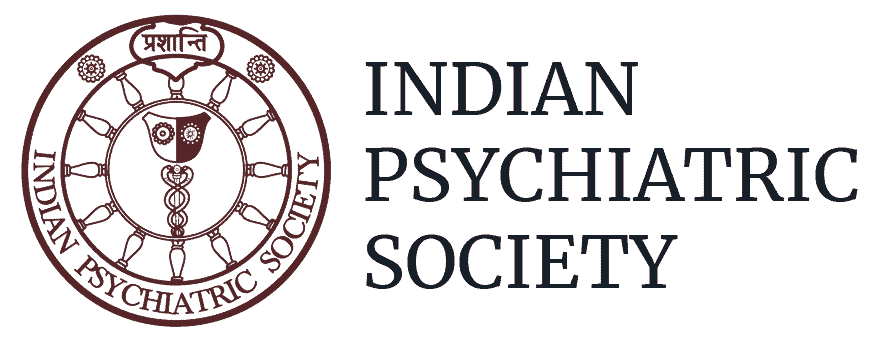World Health Organization on March 11, 2020 declared COVID-19 a pandemic. The Government, medical fraternity and public welfare organizations across India have come forward with unprecedented unity to fight this extra-ordinary challenge. The Indian Psychiatric Society is working in close liaison with the Indian Medical Association to develop public awareness modules, social education in social distancing and in stress management in the times of pandemic. To prevent panic and to fight misinformation, the IPS has taken concerted communication with its members, branches and mental health establishments across the country. The following are the IPS advisory which are in sync with that provided by the Government of India, The Indian Medical Association and the World Health Organization.
DOWNLOAD ADVISORY
Advisory:
1. Do Not Panic – Seek Correct & Timely Information:
Do not trust in lay reports, email and WhatsApp forwards regarding information on COVID-19. The sources of information on COVID-19 trusted by IPS are the following.
- Indian Medical Association – website provides updates on COVID-19 and includes guidelines for hospitals, clinics, Frequently Asked Questions and situation update. (Link: http://ima-india.org/ima/pages.php?id=37 )
- Government of India – Ministry of Health and Family Welfare – A real-time updated website containing helpline numbers for country and each state, email helplines and various Standard Operating Procedures for case management. Multiple posters in English and Hindi are also available to be put on various clinics and public health places.
- National Helpline Number : +91-11-23978046
- Link for posters: http://www.ima-india.org/ima/pdfdata/COVID-19/Govt_Poster_Corona_ad_Eng_compressed.pdf
- Indian Council of Medical Research: The Web portal provides lists of national government laboratories where COVID-19 testing can be done and guidelines for testing.
-
- Testing sites across the country: https://icmr.nic.in/sites/default/files/upload_documents/COVID_19_Testing_Laboratories.pdf
-
Additional state advisories can be accessed at individual state Department of Health websites.
Summary of current countermeasures:
i. All asymptomatic people who have undertaken International travel:
-They should stay in home quarantine for 14 days.
-They should be tested only if they become symptomatic (fever, cough, difficulty in breathing etc.).
– All family membersii. All contacts of laboratory confirmed positive cases:
iii. All symptomatic health care workers.
iv. All hospitalized patients with Severe Acute Respiratory Illness
v. Asymptomatic direct and high-risk contacts of a confirmed case should be tested once between day 5 and day14 of coming in his/her contact.
For any other seasonal flu symptoms (running nose, fever) kindly visit nearby community fever/flu clinics.
2. Social Distancing & Lock-down:
Social distancing has been found to be highly effective in slowing down or stopping the rate and extent of disease transmission in community. The full advisory of Government of India, is available at the MoHFW website [https://www.mohfw.gov.in/pdf/SocialDistancingAdvisorybyMOHFW.pdf ]
- Closure of all educational establishments, gyms, museums, cultural centers, swimming pools and theaters.
- Postpone all non-essential social and cultural gatherings.
- Traders associations to regulate hours, exhibit Do’s and Don’ts and reduce peak hour crowding in markets.
- Prevent overcrowding of hospitals & emergencies, postpone elective operations.
In districts and states with definite reported cases, complete lockdown can be initiated. All essential services including vegetables, milk and medicines supplies will function normally. So kindly do not resort
to panic buying and hoarding.
3. Do Not Avoid Quarantine:
Quarantine is a safe and non-threatening event where one has to stay in one room/apartment. No procedure is carried out during quarantine. No human rights are violated. There is no need to avoid quarantine or to fear the process. In case of any doubt, kindly verify and gather information only from health professionals.
Additionally, self-quarantine should a citizen responsibility to protect ones loved ones and one’s community.
The home quarantined person should:
a) Stay in a well-ventilated single-room preferably with an attached/separate toilet. If another family member needs to stay in the same room, it’s advisable to maintain a distance of at least 1 meter between the two.
b) Needs to stay away from elderly people, pregnant women, children and persons with co-morbidities within the household.
c) Restrict his/her movement within the house. Under no circumstances to attend any social/religious gathering.
d) Wash hand as often thoroughly with soap and water or with alcohol-based hand sanitizer
e) Avoid sharing household items e.g. dishes, drinking glasses, cups, eating utensils, towels, bedding, or other items with other people at home.
f) Wear a surgical mask at all the time. The mask should be changed every 6-8 hours and disposed off. Disposable masks are never to be reused.
g) Only one assigned family member should be tasked with taking care of the such person.
4. Stress and other mental health issues:
The IMA, WHO and the Lancet has published guidelines on mental health issues that affect population in times of epidemic and in situations of quarantine. Detailed guidelines are available at: http://www.ima-india.org/ima/pdfdata/COVID-19/Stress-Management.pdf. The following are the most important points for mental wellbeing in times of crisis.
- Don’t attach COVID-19 to any ethnicity or nationality. Be empathetic to those who got affected, in and from any country; those with the disease have not done anything wrong.
- Don’t refer to people with the disease as “COVID cases”, “COVID-families”. They are “people who have COVID-19” & “people who are being treated for COVID-19”.
- Avoid watching, reading or listening to news that cause you to feel anxious or distressed; seek information mainly to take practical steps to prepare your plans and protect yourself and loved ones.
- Anxiety, depressive symptoms and sleep disturbances can occur very commonly in such situations. Kindly seek advise from nearby General/Mental Health professionals if symptoms are persisting, severe or distressing.
- Assisting others in their time of need can benefit the person receiving support as well as the helper.
- Honor caretakers and healthcare workers supporting people affected with COVID-19 in your community. Acknowledge the role they play to save lives and keep your loved ones safe.
- Avoid using unhelpful coping strategies such as tobacco, alcohol or other drugs.
- Staying connected with your loved ones through digital methods is one way to maintain contact.
- Turn to your colleagues, your manager or other trusted persons for social support. Your colleagues may be having similar experiences as you.
- Help children find positive ways to express disturbing feelings such as fear and sadness.
- Engage in creative activities, such as playing, drawing, yoga, meditation, home exercises, etc.
- Maintain familiar routines in daily life as much as possible, especially if children are confined to home.
IPS will keep updating its members and general public about further developments and guidelines on regular basis as they change. We wish you all a healthy, safe and secure future as we navigate through the coming weeks. United, we will persevere and overcome this national calamity.
Long Live IPS!



